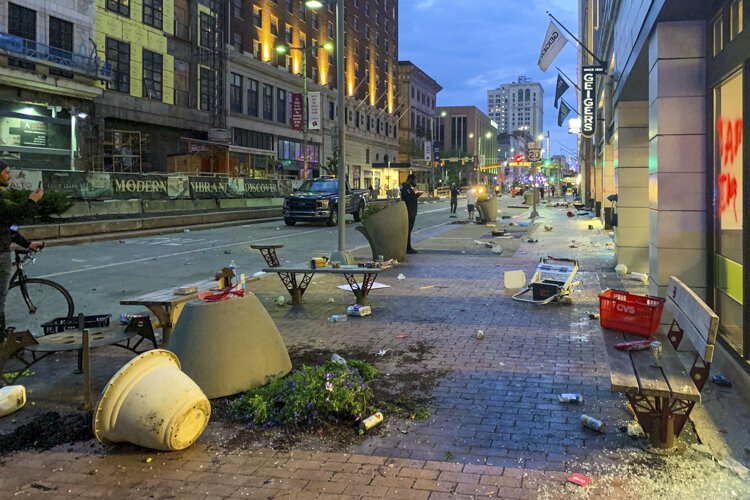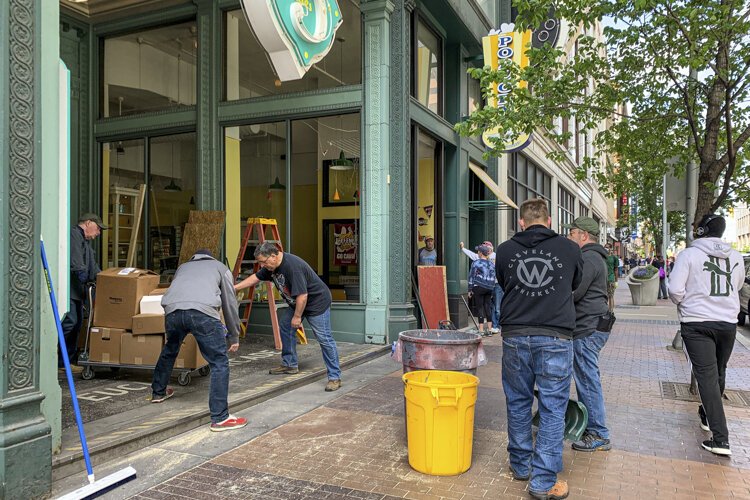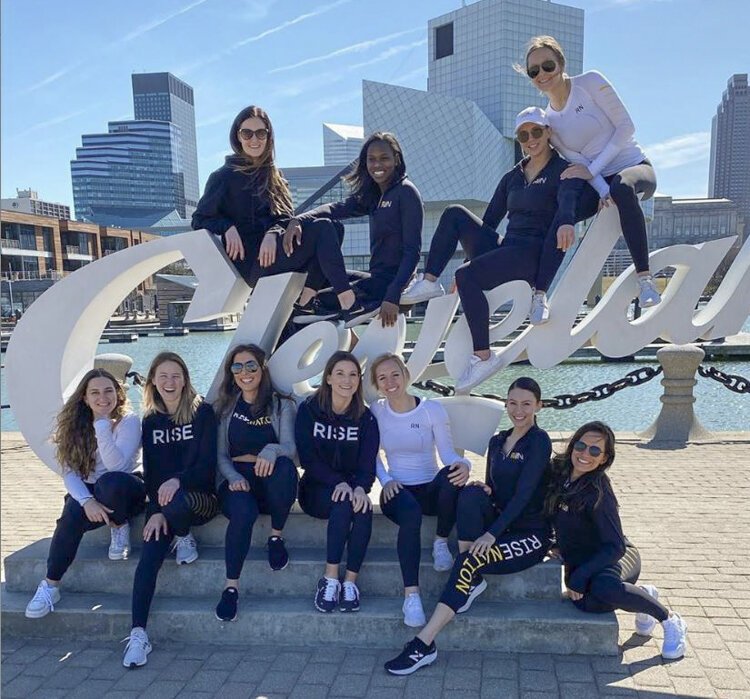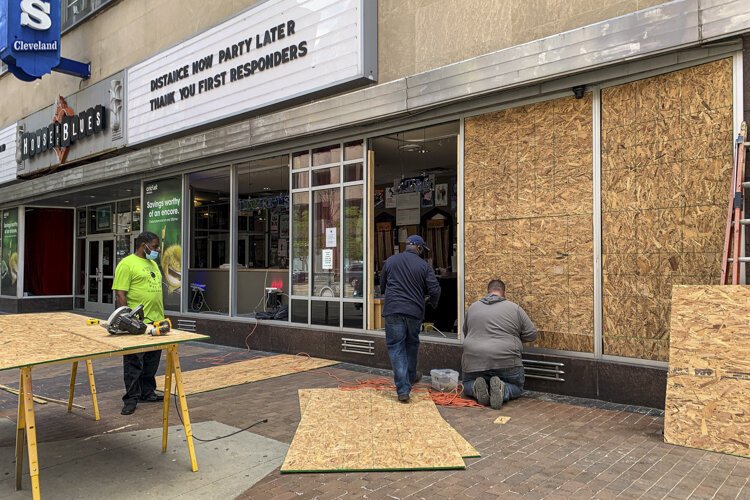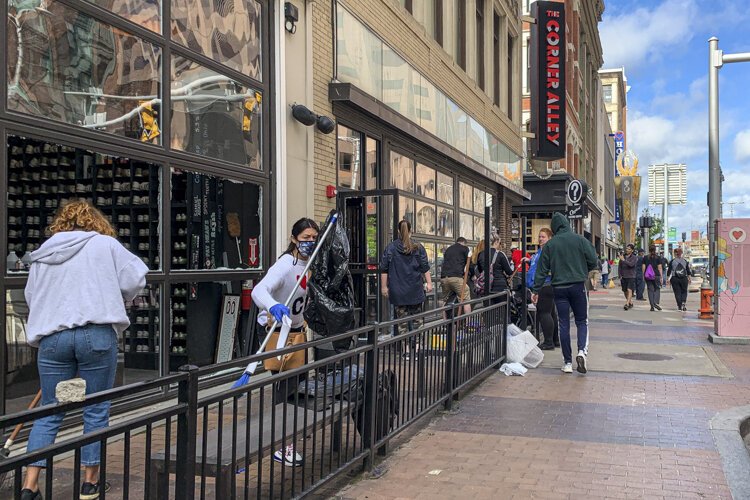Like a phoenix: Fund helps downtown businesses rise from the ashes of May’s riots
Saturday, May 30 started as a good day for Derek Millender, owner of Rise Nation fitness center at 1026 Euclid Ave. Millender first opened the gym back in July 2017 and loved his downtown location.
“There’s good foot traffic, we’re next to Geiger’s and Heinen’s,” he says. “I feel like that’s good energy.”
That Saturday, Millender had just finished a second trial class at Rise Nation—conducting test runs for the safety and comfort levels of his members before officially re-opening after the statewide coronavirus shutdown.
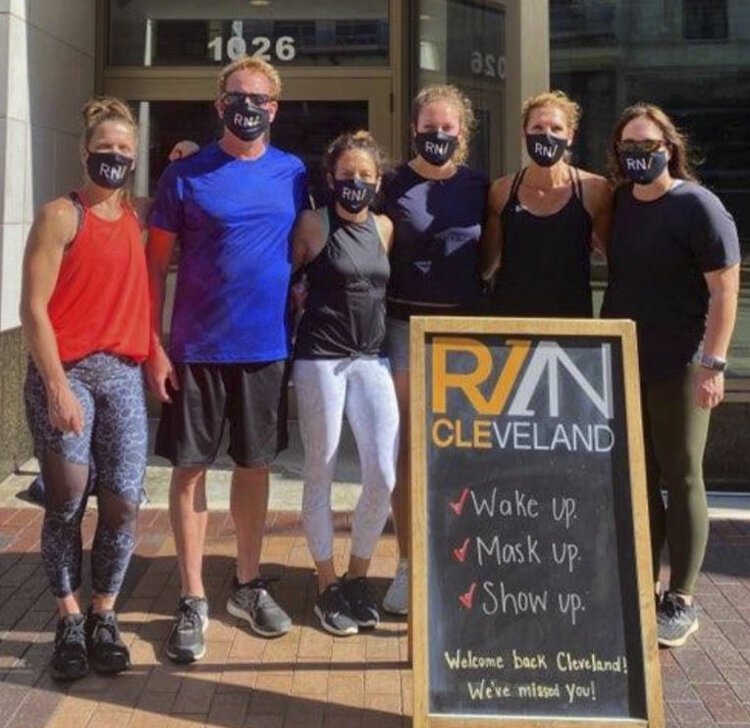 Rise NationMillender was feeling good and had a positive feeling about reopening.
Rise NationMillender was feeling good and had a positive feeling about reopening.
Then, that night, the George Floyd memorial protest that began peacefully turned to rioting, looting, and damage throughout Downtown Cleveland.
Millender’s fitness center front was destroyed—the large glass windows shattered, gym equipment was damaged, as were floors and walls, and merchandise in the front display was stolen.
“We were a part of, like many businesses in downtown Cleveland, part of some bad acts,” he recalls.
After going into debt because of the COVID-19 shutdown, Millender was now faced with insurance claims and repair debt.
But now, thanks to the Downtown Recovery Response Fund—a collaboration between Downtown Cleveland Alliance (DCA), City of Cleveland, Cuyahoga County, Cleveland Foundation, Greater Cleveland Partnership (GCP), Destination Cleveland, Historic Gateway Neighborhood Corporation, Historic Warehouse District Development Corporation, and corporate and civic partners—Millender is getting some relief.
“Shortly after the events of May 30, we brought together stakeholders, realizing there might be a need [for assistance],” says DCA president and CEO Joe Marinucci, adding that 103 companies applied for grant money.
The group has raised $1.45 million to support small and locally owned downtown businesses in danger of closing because of the property damages suffered during the rioting.
Aside from funding repairs, Marinucci says the fund is saving about 1,500 downtown jobs at businesses that might otherwise have had to close.
Millender received $20,000 to repair Rise Nation. “This is huge help,” he says of the money. “We already were dipping in so many times.”
Marinucci says the group focused on vulnerable and minority-owned small businesses. There is also an emphasis on those who employ people of color and provide essential goods and services for downtown residents and employees.
“We’re sensitive to the fact that this began as a peaceful protest,” he says. “All of us are very sensitive to racial equity and systematic racism.”
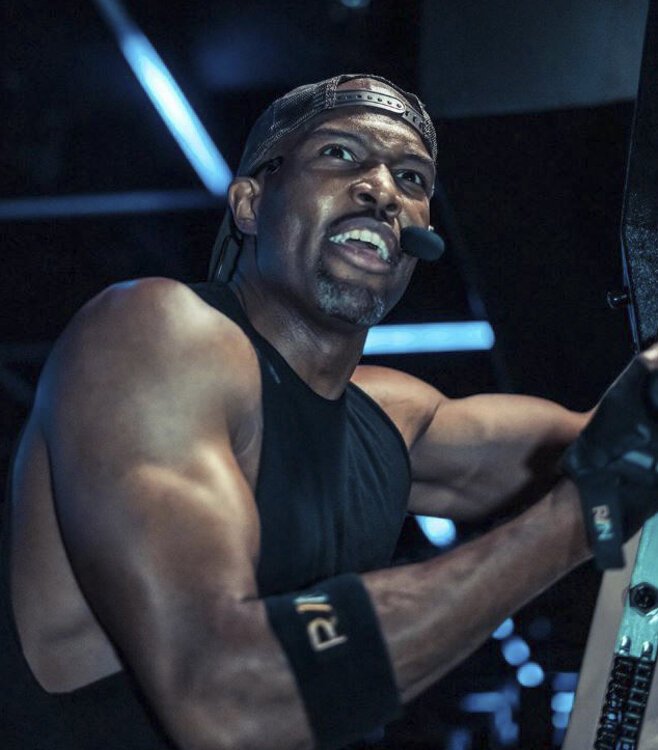 Derek Millender, Rise NationMarinucci stresses that the group also wanted to get people back to work and keep businesses from closing permanently. “I think we’re going to be able to support all of them,” he says. “We want to jump start things and get going.”
Derek Millender, Rise NationMarinucci stresses that the group also wanted to get people back to work and keep businesses from closing permanently. “I think we’re going to be able to support all of them,” he says. “We want to jump start things and get going.”
Millender, who says he tries to highlight the positives in every situation, remembers all the people who came out to help with repairs after the violence.
“What was great about it was how many people came out on May 31—so many acts of humanity,” he says. “All that was awesome—just [hearing] kind words as people walked by as we were applying plywood.”
Millender says he has been able to remain open and is currently focused on keeping his staff and members healthy. “We’re going to use that money to reinvest in our community and to keep people safe,” he says.


